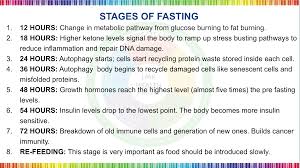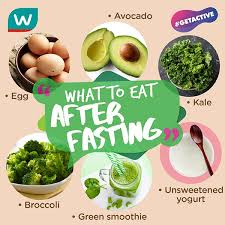Fasting, many people do not love hearing this word, or look to incorporate it into their regular life. It should not come as a shock that there are countless benefits to fasting. Whatever type of fast you decide to do, it is extremely important to stay well hydrated during your fast. This includes upping your water consumption prior to beginning your fast for at least 3 days. Many clients will seem intimidated by a fast for their first time, claiming they will be hungry and not able to do the fast. I tell my clients that most of the time when one feels “hungry” it is more likely that they are dehydrated and need to drink more water. If you are pregnant, take medications, or have diabetes type 1, please check with your doctor before attempting a fast.
Let’s break it down to a few different types of fasts. A water fast, where one only consumes water for a period of time. A bone broth fast, one of my favorites, is when one consumes water and bone broth. I enjoy a bone broth fast since it allows your body to have nutritious support from the bone broth while you are abstaining from food. A juice fast is consuming water and pressed juices (not smoothies). The length of time to fast is up to the individual but every hour you continue to fast, your body indeed benefits! Intermittent fasting has become popular in recent years. This is a great option for many folks who are intimidated by a longer period of fasting. 16/8 is an example of intermittent fasting, this means you fast for 16 hours and you have 8 hours of eating available to you within a 24 hour period. I do suggest that all participate in a 12/12 fast daily. This period of 12 hours fasting is technically a “digestive rest”. It is important for your body to have rest time. Another example of intermittent fasting is the 5:2 approach. This involves eating regularly for 5 days, and limiting the remaining 2 days to a total of only 500 calories each day.

0-4 Hours (Anabolic Phase):
- Your body digests and absorbs nutrients from your last meal.
- Insulin levels are high, promoting muscle growth and repair.
4-16 Hours (Catabolic Phase):
- Your body starts using stored glycogen (glucose) for energy.
- Insulin levels decline, and fat burning increases.
- Autophagy (cell recycling) begins.
- Ketones become the primary energy source, leading to weight loss and improved metabolic health.
- Growth hormone levels increase.
24-72 Hours (Prolonged Fasting):
- Ketone production continues and intensifies.
- Muscle breakdown may occur if not supplemented with protein.
- The body enters a state of deep ketosis and autophagy.
Beyond 72 Hours (Starvation):
- Extreme physiological changes occur, including organ damage and electrolyte imbalances.
- Medical supervision is crucial during prolonged fasting.

My husband and I enjoy a longer fast multiple times throughout the year for a multitude of reasons. When I am not feeling connected with my mind and what I am consuming it is time for a fast. Fasting allows me to realize when I reach for food, is it because I am hungry, or is it purely out of habit or boredom. Whenever I am in need of a “reset” I do a 40-60 hour fast. This seems to be when we get back from a vacation and we have indulged in foods we generally do not consume. When I feel bloated or “thick” I like to fast to get a handle on what I am consuming while dropping a few pounds. This helps me to continue to make heathier choices in the future once I have gone without food. It is important to plan and be prepared for your first meal after a fast. Whole foods with protein and healthy fats is essential. I generally like to break my fast with a glass of water, eggs, sautéed kale, and sliced avocado.

Fasting benefits may include:
- autophagy – cellular repair where damaged cells are removed and cellular renewal is supported
- improves metabolic health – may reduce risk of diabetes type 2 by enhancing insulin sensitivity & improving blood sugar control
- increases mindfulness around food and beverage consumption
- reduce inflammation
- weight loss and fat reduction
- increased mental clarity
- may improve cardiovascular health by lowering blood pressure and lowering “bad” cholesterol LDL
- from a religious standpoint it may cleanse the body and soul, deepen your connection with God.
Fasting is common around the world in many religious communities and has been practiced for centuries. Islam, Judaism, Christianity, Hinduism, Buddhism all practice some sort of fasting throughout the year. Many religions consider fasting a way to connect with the divine, a way to express humility, and focus on spiritual matters. The act of fasting can be a form of self discipline and self control.
Whatever the reason may be for you to try fasting, you can see from above that there are many benefits to fasting. This is a not a new age idea, millions of people have been practicing the act of fasting for eons. Give one a try and see how you feel! I also offer a 10 day program, REFRESH, that kicks off with a guided 40 hour bone broth fast. Reach out if you have interest in my program, or just have general questions in regards to fasting. Happy healing!

